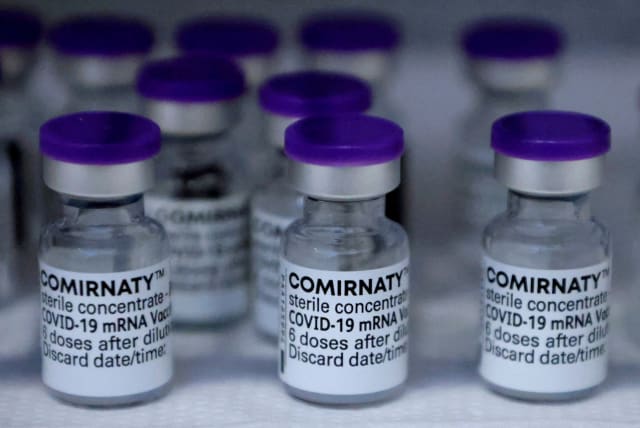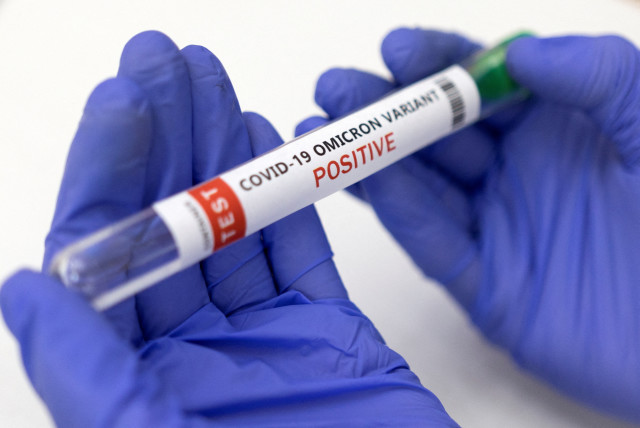US FDA panel weighs makeup of next COVID vaccine

The next-generation shots should select a single XBB-related target, the FDA's staff reviewers suggested.
Advisers to the US Food and Drug Administration were meeting on Thursday to discuss and vote on whether to recommend targeting one of the currently dominant XBB coronavirus variants in updated COVID-19 shots being developed for a fall vaccination campaign.
FDA staff reviewers in documents released this week said available evidence suggests this year's shots should target an XBB variant. XBB and its offshoots, which now account for most US infections, are descendents of the Omicron variant that caused COVID cases to surge to record levels early last year.
US regulators are looking to bring the next COVID shots more closely in line with the circulating virus
The next-generation shots should select a single XBB-related target, the FDA's staff reviewers suggested. A so-called monovalent vaccine would be a change from the most recent bivalent COVID boosters that targeted both the original strain of the coronavirus and Omicron.
Top FDA official Peter Marks said there was concern about another COVID wave over the 2023-2024 winter, when population immunity could wane further.
The expert panel meeting comes after an advisory group to the World Health Organization (WHO) last month recommended the next wave of COVID booster shots be updated to target XBB subvariants. Europe's medicine regulators backed that recommendation.
The U.S. Centers for Disease Control and Prevention (CDC) recommended booster shots broadly last year. But panel member Dr. Paul Offit questioned whether the shots needed to be recommended for "everybody every season," noting that the highest risk groups are those most likely to benefit from an annual booster.
Only about 17% of the U.S. population - some 56.5 million people - received a COVID booster during the 2022-2023 vaccination season, according to government data through early May. Older Americans were boosted at a higher rate than the general population.
"The highest-risk people are really older adults as well as people with significant comorbidities," said Dr. Paul Sax from Brigham and Women's Hospital in Boston who is not on the advisory panel. "That's the primary group to target."
The FDA will take recommendations from its outside experts into consideration before making a final decision on composition of the shots.
The panel will discuss, but not vote on, exactly which subvariant it believes the vaccines should target, with XBB.1.5, XBB.1.16 and XBB.2.3 among the candidates.
COVID vaccine makers Pfizer PFE.N/BioNtech 22UAy.DE, Moderna MRNA.O and Novavax NVAX.O are already developing versions of their respective vaccines targeting XBB.1.5 and other currently circulating subvariants. Preclinical data from all three was presented at the meeting.
Pfizer, in its presentation, said it could supply its monovalent shots targeting the XBB.1.5 subvariant by the end of July, and those targeting the XBB.1.16 subvariant by August.
Between Moderna and Pfizer, Morningstar analyst Karen Andersen expects 75 million doses to be sold in the United States during the 2023-2024 campaign.
Moderna last month said it continues to expect the U.S. annual COVID-19 market to be 100 million doses, largely in line with Pfizer's view of 102 million.
COVID deaths and hospitalizations have declined in 2023, and the U.S. government in May ended its COVID Public Health Emergency, which had allowed millions of Americans to receive vaccines, tests and treatments at no cost.
Jerusalem Post Store
`; document.getElementById("linkPremium").innerHTML = cont; var divWithLink = document.getElementById("premium-link"); if (divWithLink !== null && divWithLink !== 'undefined') { divWithLink.style.border = "solid 1px #cb0f3e"; divWithLink.style.textAlign = "center"; divWithLink.style.marginBottom = "15px"; divWithLink.style.marginTop = "15px"; divWithLink.style.width = "100%"; divWithLink.style.backgroundColor = "#122952"; divWithLink.style.color = "#ffffff"; divWithLink.style.lineHeight = "1.5"; } } (function (v, i) { });

